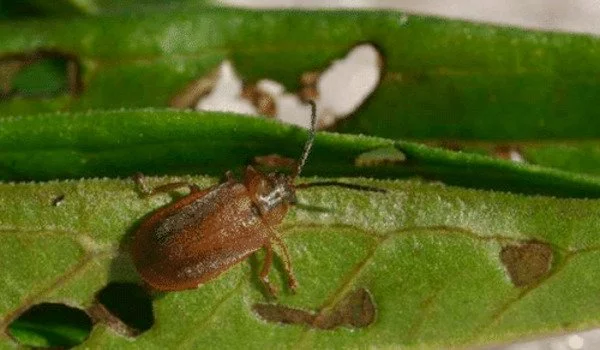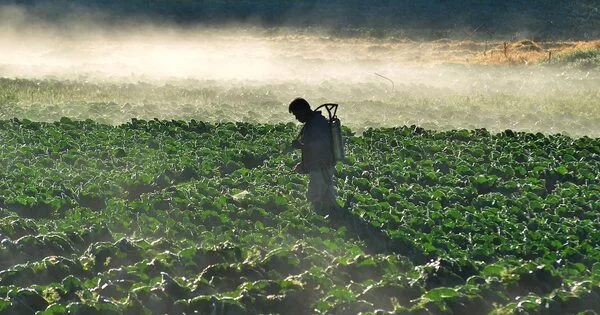Disease is wreaking havoc on vital European crops such as vines and olives. To improve crop and human health, scientists are looking for biological alternatives to chemical pesticides. Invasive species pose a significant threat to agriculture. The United Nations (UN) estimates that plant disease costs the global economy more than €200 billion per year, with pests accounting for 20-40% of crop production.
According to new research, when fields of oilseed rape are exposed to diesel exhaust and/or ozone – both of which are found in emissions from diesel-powered vehicles and industry – the number of parasitic insects available to control aphids decreases significantly.
Scientists from the University of Reading led the team, which used specialized equipment to deliver controlled amounts of diesel exhaust and ozone to oilseed rape plants. They also injected aphids into the plants and tracked the reproductive success of parasitic wasps that lay their eggs inside freshly stung aphids.
Diaretiella rapae prefers to prey on cabbage aphids, which feed on brassica crops. Some of the flavor and odor compounds in oilseed rape are known to be converted into substances that attract D.rapae. So we could hypothesize that the stronger smell attracts wasps, and that they are more successful in finding and preying on aphids as a result.
Dr. Ryalls
Dr. James Ryalls, University of Reading said: “Even at the levels we used, which were lower than safe maximums set by environmental regulators, the overall numbers of parasitic insects still fell. This is a worrying result as many sustainable farming practices rely on natural pest control to keep aphids and other unwelcome creatures away from valuable crops. Diesel and ozone appear to make it more difficult for the wasps to find aphids to prey upon and so the wasp population would drop over time.”
While the majority of parasitic wasp species decreased in polluted environments, one species of parasitic wasp appeared to do better when both diesel and ozone were present. However, the researchers found that this combination of pollutants also correlated with changes in the plants which might explain the finding.

Oilseed rape plants produced more of the compounds that give brassica family crops, such as mustards and cabbages, their distinctive bitter, hot, and peppery flavor notes when both pollutants were present. These typically repel insects, but in the case of Diaretiella rapae wasps, there was increased abundance and reproductive success associated with the combination of diesel exhaust and ozone.
Dr. Ryalls stated: “Diaretiella rapae prefers to prey on cabbage aphids, which feed on brassica crops. Some of the flavor and odor compounds in oilseed rape are known to be converted into substances that attract D.rapae. So we could hypothesize that the stronger smell attracts wasps, and that they are more successful in finding and preying on aphids as a result. D.rapae may be a good choice for pest control in diesel and ozone-polluted areas. This demonstrates that studying whole systems is the only way to predict and mitigate the effects of air pollutants.”
Air pollution will change as transportation shifts away from diesel and toward electric motors. Knowing how pest-regulation service providers, such as parasitic wasps, respond to these progressive changes will be critical in developing mitigation strategies to ensure long-term food security. This study demonstrates that we must also consider the impact of pollution on plants, wasps, and prey insects, as well as the interactions between all three.





